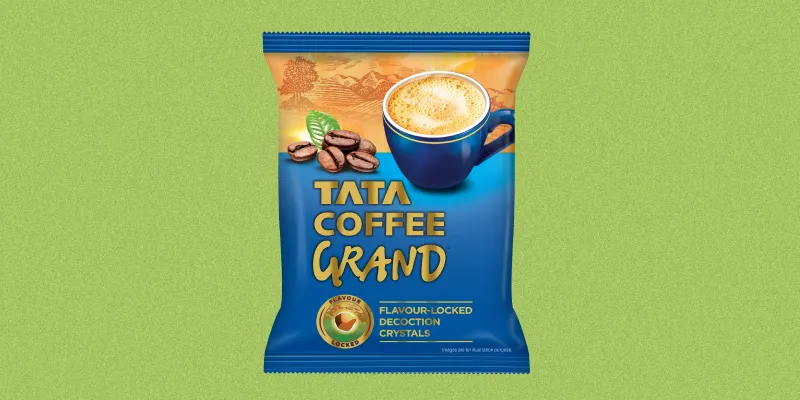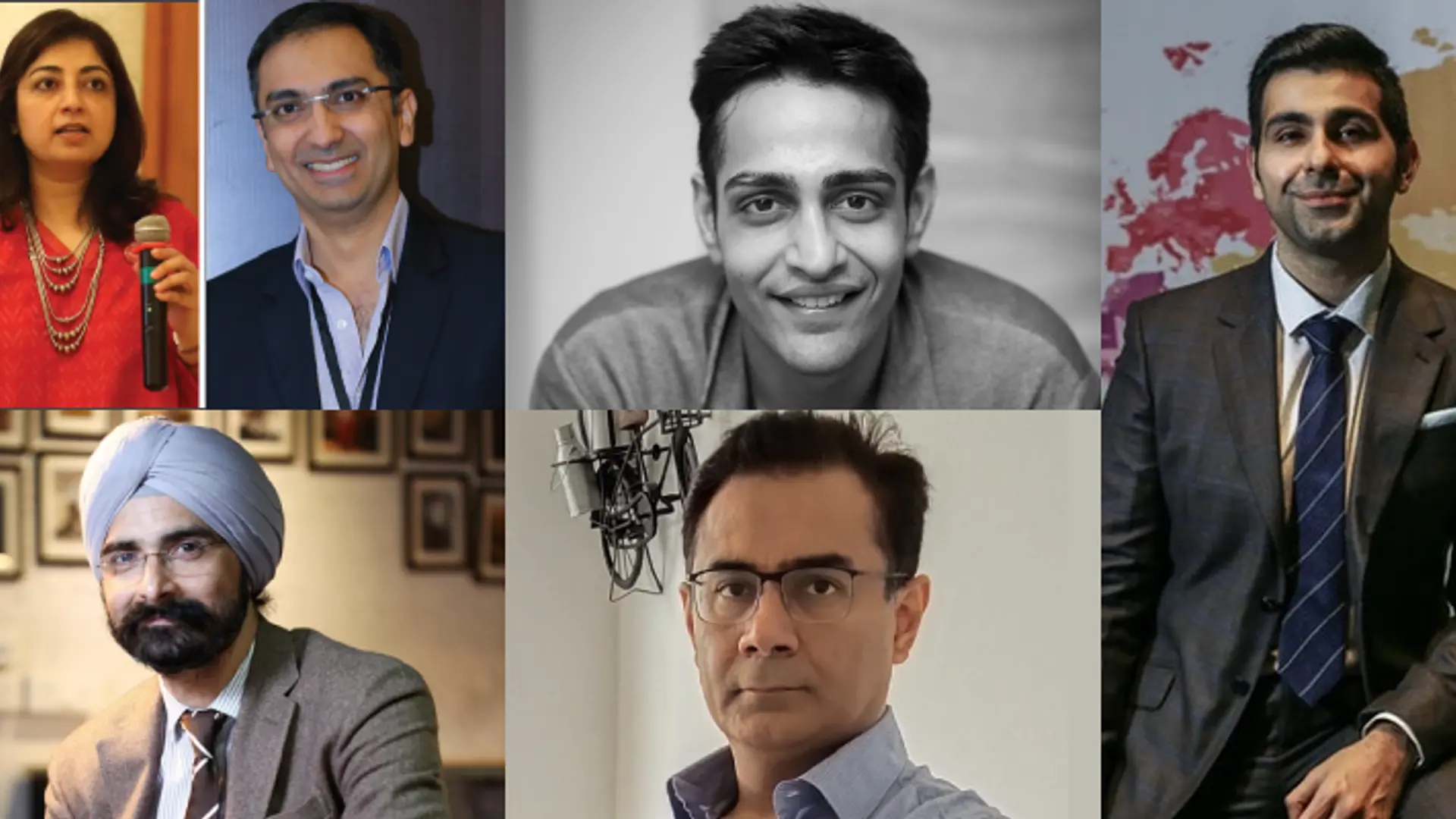Instant coffee is the biggest and fastest-growing segments, says Puneet Das of Tata Consumer Products
SMBStory spoke to Puneet Das, Senior Vice President, Marketing- Beverages, Tata Consumer Products on how the Indian giant restaged its coffee arm, the market at-large, the impact of COVID-19, and much more.
Indian conglomerate Tata Group is well-known for its steel, defence, automobile, and other arms. However, over the years, its fast-moving goods (FMCG) arm has steadily gained prominence.
Tata Consumer Products’ history dates back to 1964 when Tata Finlay was formed in alliance with tea giant James Finlay. In 1976, Tata Group took over the production and marketing, and started running the company by itself. Over the years, the giant has forayed into other categories such as coffee, salt, tea, water, and other products under the FMCG arm Tata Global Beverages (TGB). In 2019, this arm was merged with Tata Chemicals to form Tata Consumer Products.
SMBStory spoke to Puneet Das, Senior Vice President, Marketing-Beverages, TCP on how the Indian giant restaged its coffee arm, the market at-large, the impact of COVID-19, and much more. Puneet joined the company in 2017, and now wants to make Tata Coffee Grand an established player in the Indian coffee industry.
SMBStory [SMBS]: When was Tata Coffee Grand launched, and what was the intention behind restaging the product?
Puneet Das [PD]: We launched Tata Coffee Grand around 2016. The idea for the past two to three years was more about stabilising the business, along with getting feedback about our product from the market.
And definitely, we got to learn a lot. We realised that people were liking our product. There were also a lot of repeat orders. This gave us confidence in the product and we decided to further scale up our ambitions by innovating and restaging it. Right now, our market share is less than a percent. The idea behind restaging was to take our product and proposition to the masses and let them discover why is it unique.
In the restaged product, we have flavour-locked decoction crystals which lock the aroma and the freshness. These crystals are a bit more granular rather than powdery. We introduced this particular blend in a Rs 2 packing format so that we can expand the number of customers, especially in south India where about 40 percent of the market drinks coffee.
SMBS: The Indian coffee market is extremely crowded. Did you deploy any particular strategy to ensure that the newly restaged product stands out?
PD: The underlying intention has been to get more and more people to try it out. Hence, we came up with this unique proposition, which was about introducing this element of the ‘sound of coffee’. So, if you have seen coffee ads in the past, they mostly talk about flavour, aroma, freshness, etc. In our effort to find a new perspective to the experience, we came up with a unique tagline – “Shik, Shik, Shik” – specifically to tap into the south Indian market, which is dominated by filter coffee.

TCP's restaged coffee product
SMBS: Have you done any major innovation on the packaging front?
PD: Coffee is a hygroscopic product. That is why many people prefer to have it in a two-rupee pack as well. Moreover, one pack of coffee is consumed in a single go, so people don’t prefer buying it in one or two packs; they buy a strip. If kept for too long, the coffee can get spoilt. This is the only thing introduced to the packaging.
I think the real innovation is more in the blend, which sort of gives you a better experience of coffee.
SMBS: A lot of startups in the gourmet coffee space or catering to the fourth wave of coffee are entering the market. Your thoughts?
PD: This micro trend towards speciality or gourmet coffee is more prevalent in the top two-three metro cities in India and also, from a coffee business perspective, it is not more than 5 percent of the coffee market.
The instant coffee segment is the biggest and the fastest growing of them all. More people are looking for better coffee at their convenience. The coffee segment is roughly worth around Rs 250 crore, where instant coffee offers the largest pie of the market.
When it comes to the coffee market all over the world, you will see such trends related to artisanal and gourmet coffee, but they will only become big over time. Additionally, they are more D2C or ecommerce-led. Right now, they're quite small.
Our focus, at the moment, is to establish ourselves as a coffee brand by offering great quality products and make them a part of everybody’s daily consumption. Once we have scaled the length and breadth of the country, we will go into the premium coffee segment.
SMBS: According to data, even though India is one of the largest exporters of coffee, the per capita consumption is still low. Your comments?
PD: According to estimates by Nielsen, the Indian coffee market is just one-tenth of the tea market. Tea is obviously ten times bigger as a category in India and this could be one of the reasons for the low per capita consumption here. However, if you see south India, coffee has a bigger market share. Moreover, several outlets in the unorganised sector offer both tea and coffee, but that doesn’t get counted in the FMCG space.
The Indian coffee market, dominated by instant coffee, filter coffee, and then other traditional ones, has been growing by seven to eight percent, and I see consumption of coffee increasing in the coming times.

Puneet Das, Senior Vice President, Marketing-Beverages, TCP
SMBS: Tata Consumer Products also has several other verticals including tea, water, and food. How are they faring, especially in the wake of COVID-19?
PD: I will stick to beverages and would highlight that we saw two opposing trends. While the out-of-home consumption went down, but the in-home consumption went up. Because tea and coffee are a part of people’s daily habits, we didn’t see much fluctuation. This is true not just in the beverage segment but in the food industry at large; people have found a way to indulge at home.
Earlier, they had the option to go out. Today, even after the unlock, socially-distanced behaviour continues to prevail. The mood of indulgence, and pampering yourself with food and drinks, has really bolstered the market.
Also, during COVID-19, people were pushed to buy only from trusted brands. As a Tata brand, we were able to leverage that. We also ensured that we managed our stocks well. We tied up with Domino’s and to ensure an interrupted supply.
SMBS: What are your plans in the coming times?
PD: From the coffee business perspective, we want to keep scaling and expanding. We are trying to leverage the regional expertise and ensure that our leadership is abreast with the trends while we continue to grow our core business.
Edited by Kanishk Singh









